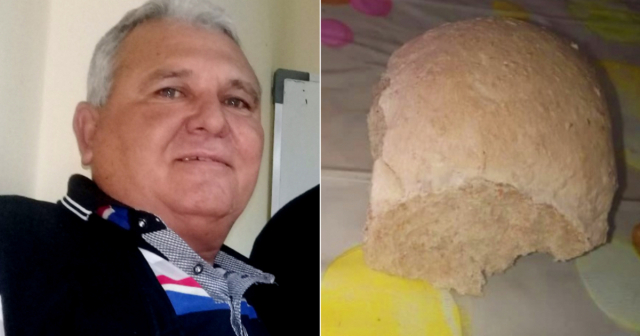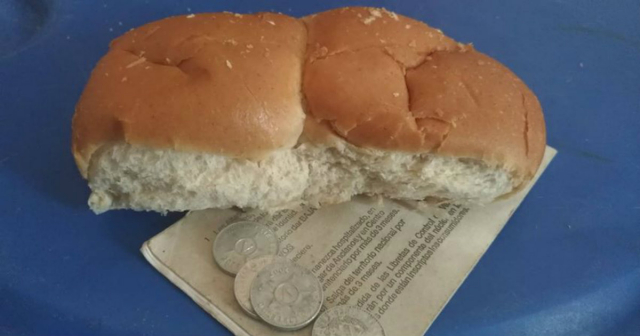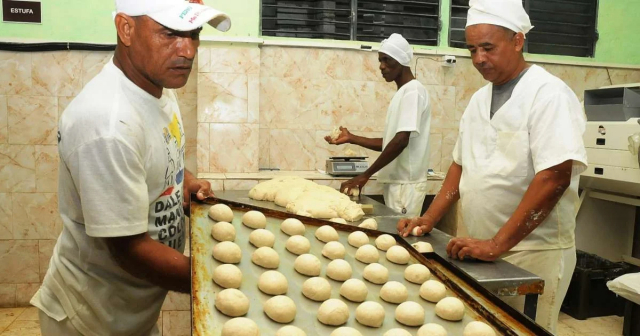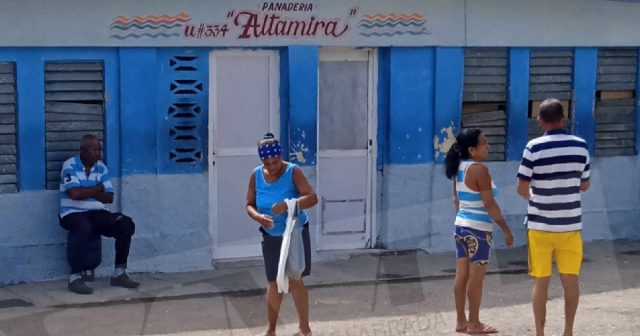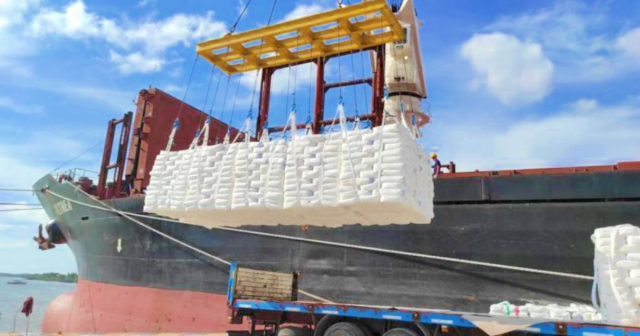An industrial plant in Cienfuegos stabilized thecassava flour production, which is used in themaking bread and other foods given the critical deficit of wheat flour in the country, according to official reports.
The mini-industry, with Colombian technology, operates in the Antonio Maceo Credit and Services Cooperative (CCS), belonging to the Horquita Agricultural Company in the Abreus municipality, and has the capacity to obtain two tons of the product per day, which is used mixed with wheat flour. , according to a note from the officialCuban News Agency (ACN).
Modesto Rodriguez, director of the CCS, recently told the local telecenterPerlavision that this "alternative" seeks to "save wheat flour" and explained that the product is being used as an extender in meat plants and in the production of bread, in whose formula 20% cassava flour and 80% wheat are mixed. . In addition, it is used in the manufacture of feed for animal consumption.

However, one of the problems that threaten the production process are the constant electrical outages. Because of this, Rodríguez assured, they work when there is light because "the current must be used when it is available," even at night, to avoid delays.
According toPerlavision, the production of cassava flour has also been stabilized thanks to the incorporation of the mini-industry to an international project that supports sustainable agriculture, which allows improving the conditions of the machinery involved in the process.
The raw material is guaranteed with the cultivation of cassava on more than 500 hectares in several production units, such as "Antonio Maceo", headquarters of the mini-industry, the CPA 28 de Enero and the UEB (Base Business Unit) Juraguá de la Horquita agricultural company, according to another of the managers interviewed by the official television channel.
He himself, who was not identified, commented that cassava is a noble crop and therefore, amidst the few existing resources, this type of production must be ensured.
Likewise, the director of the cooperative reported that they have a mechanized seeding machine, "the first in the country", to which the "vareta" is introduced, and the team chops it up, sows it and covers it.
He assured that with this machinery you can grow 10 hectares in a short time, you save on salaries because you need less staff and the cultivation is less expensive. However, these statements could be questionable given the number of unemployed - euphemistically called by the government "available workers" - in Cuba.
Rodríguez added that as part of the project they also obtained a mechanized traction machine to remove the cassava, which improves the harvest and speeds up the processes.
Faced with the national crisis due to the shortage of wheat flour for the production of breads, sweets, cookies and other foods, options are being applied in the country that seek to mitigate the lack of this primary component, with cassava being the product that most bets on. the Cuban food industry.
Last August, the Ministry of Domestic Trade (MINCIN) recognized problems in the importation of wheat, however,He denied that there were any effects on the production of bread for the family basket. and the Cuban Bread Chain, despite citizen complaints about limitations on the sale of food in some bakeries.
Many Cubans then claimed that eating bread is more difficult today than during the so-called Special Period, in the 90s of the last century, and they complained about the delays in the distribution of bread.
In several regions of the country, the use of cassava flour has also been promoted; for example, in Villa Clara, where the tuber is used asdietary supplement for pigs and cattle.
Similarly, in Camagüey they use whey andrice and cassava flour to produce food; while in Las Tunas sweets are made without eggs andYucca croquettes.
Despite innovations and alternatives, the flour crisis is a fact that even reached the Catholic Church in Cuba. The barefoot Carmelites of Havana reported that they They could not continue making or selling the hosts Well, they ran out of flour.
The current crisis in wheat flour and bread production this year is another example of thewidespread shortage of essential foods in Cuba. The Cuban managers themselvesThey described the flour supply situation in the national market as critical due to lack of financing for the purchase of wheat. To guarantee the demand for national flour, the country should receive three or four ships of wheat each month, but due to lack of funds only one or two are arriving.
What do you think?
SEE COMMENTS (1)Filed in:

